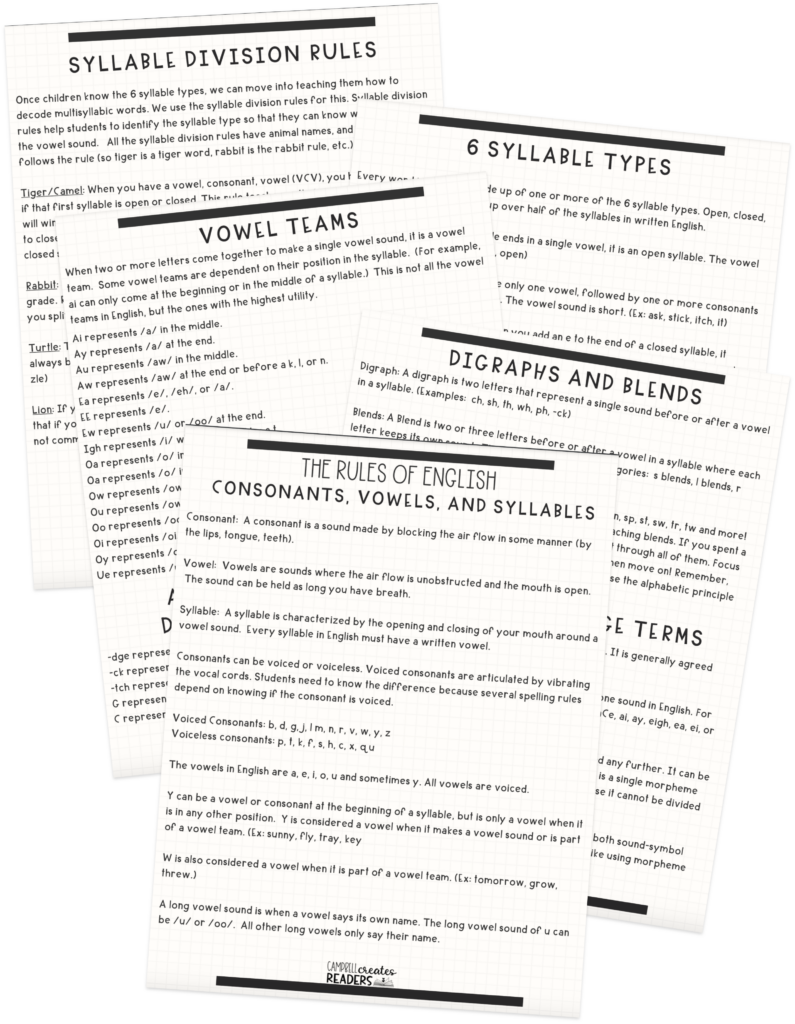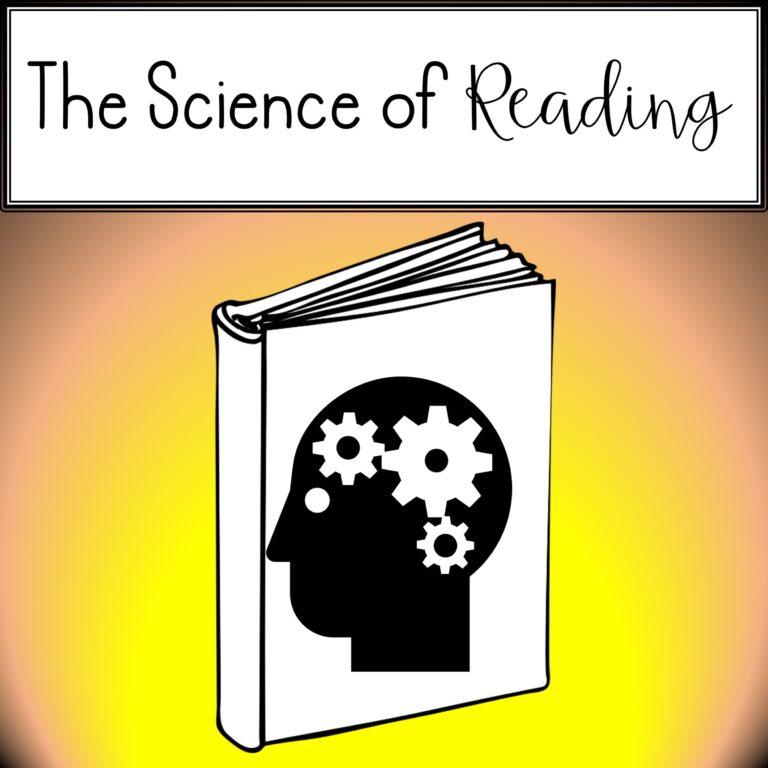
Share This:
The school year is winding down, and summer is on our minds. As we begin daydreaming about our own adventures, we’re also thinking about what we can do to help our kiddos avoid the dreaded summer slide. Today, I want to talk about some resources you can send home with your students that could help them live more literate lives this summer.
Talk to your library. See if they’d be willing to give you an application to copy. Many students never go to the library. By offering an application to students at home, we are eliminating some potential barriers for our students. Parents may not have the time to fill out an application in the library, or they might be unable to fill it out themselves. By providing it to them beforehand, we are removing those barriers.
Our library does a summer reading challenge each summer, where both children and adults can fill out a bingo board to win prizes. Last year, we were able to get a copy of the bingo board and send it home with every single student. See if your library has a similar incentive program and ask for copies. The worst they can do is say no!

I recognize that this one could take a bit of paper, so use your judgment! With a word ladder,* you start with a word at the bottom, and then you use clues about meaning and letters to create a new word. This is different from a word chain, which only focuses on sound-symbol correspondences. In a word ladder, you are expecting students to use their own background knowledge and vocabulary to come up with the word themselves!
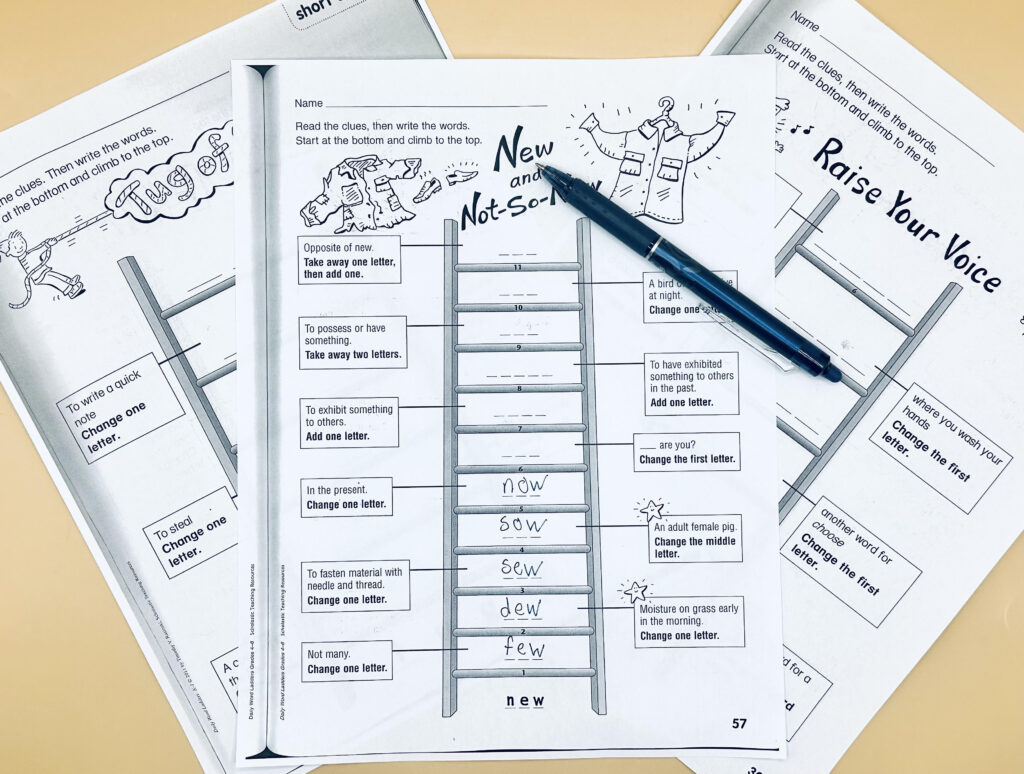
Word ladders are especially useful for promoting background knowledge and cementing those sound-symbol correspondences.
I love Tim Rasinski’s word ladders, and the kids love them too. I actually had a 5th grader recently ask me if I could make him a packet to do at home. It made me realize these would be FANTASTIC to send home for practice over the summer, especially with older students.
This link * will take you to the book for graders 2-3, but I own the k/1 version, 1-2, 2-3, and 4-6 version. I love every single one of them!
Last year, we wanted to send games home with our students. The issue was this: every game I had needed a lot of printing per student. I couldn’t imagine having to print out and laminate game cards for every student. And that would just be ONE game. A single game doesn’t have much longevity. While I love board games for my own small groups, they aren’t feasible for sending home with every child.
Last year, I decided to make games that we COULD send home with students. These roll and read games require a single sheet of paper. We purchased dry erase pockets from the Dollar Tree so the games could be used again and again.
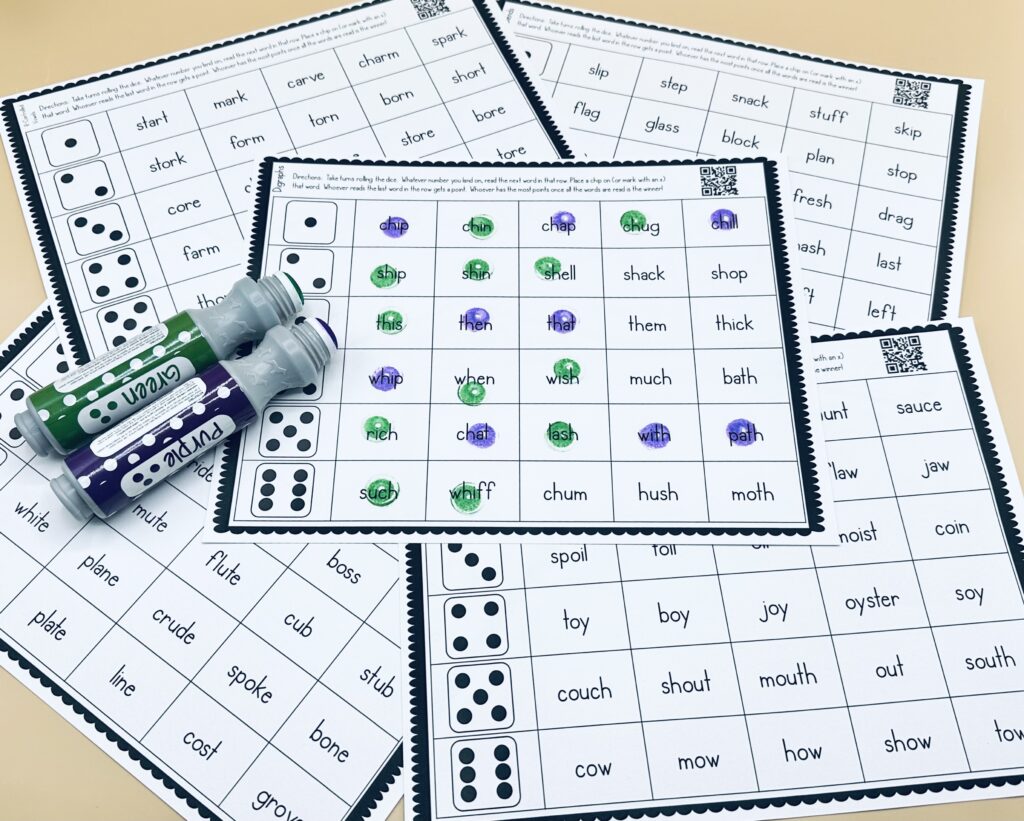
For the roll and read games, students roll a dice (also from Dollar Tree) and read a word from the row. Whoever reads the last word in a row gets a point. Whoever has the most points at the end wins! We sent home ALL games with all students, no matter the grade level. We knew that even if our older students had internalized the skills, they could play them with younger siblings.
It sounds simple, but this is a powerful one. Sometimes we don’t realize how many of our students have very few books at home. Throughout the year, I gather lower-priced Scholastic books. At the end of the year, we allow all of our students to choose several books to take home with them. I typically do a K-2 table and a 3-5 table. Children are free to choose from those books and are not limited to a “level.”
Pro tip: This is how I find the cheapest Scholastic books. Go to the search bar when you are logged into your Scholastic account. Just press the space bar and enter. This will pull up all of the books on the Scholastic website. Then, on the left-hand side, you can filter by price. I always look for books that are $1-2.

If you have younger students, this phonemic awareness calendar is a simple way to support phonemic awareness throughout the summer. Bonus? It is COMPLETELY free. I make these calendars for the entire year, but you can send June, July and August home with students for the summer. Each day has a phonemic or phonological awareness activity that takes less than a minute to complete.
The best part? There’s even a QR code that parents can scan to show them how to complete each activity.
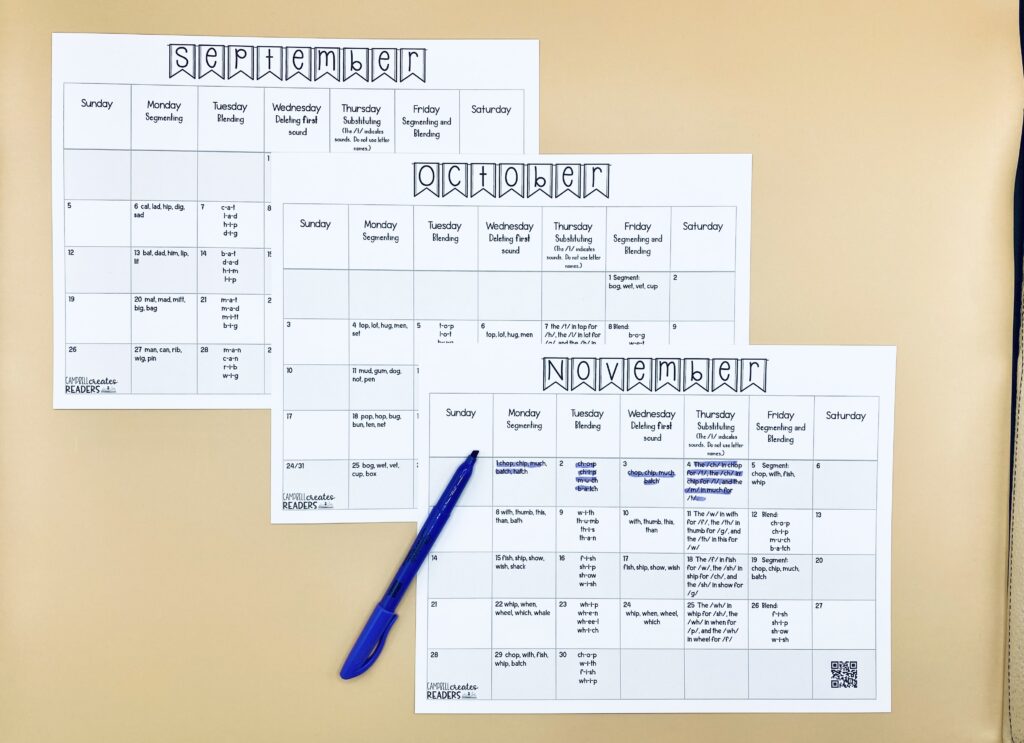
Never take for granted what you think your students have at home. Many of our students, even our struggling learners, love to play school. When we give our students materials that they can use at home, we are opening additional opportunities for them to continue summer learning. Last year we sent home dry erase boards, markers, and erasers with every student.
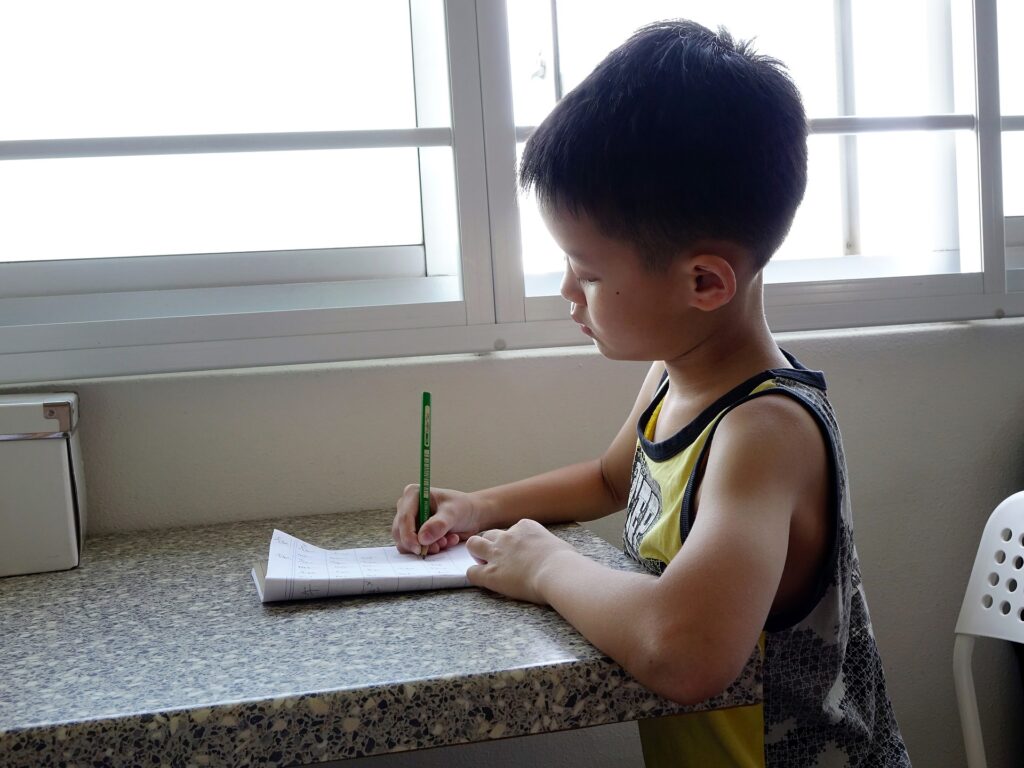
Think, what could you send home with your students so they could “play” school and practice this summer? Their composition books? Packs of paper? Pre-sharpened pencils? Dry erase boards with markers? We’re always thinking of ways we can remove barriers for our students, and basic supplies might be one such barrier.
In addition, could you send home some word lists for practice? Parents could choose words for their child, or the students themselves could play school with their siblings or daycare provider.
You’ve heard me talk about decodable folders before. The beauty of making the folders is that you can send them home at the end of the year. When I am wrapping up groups, I allow them to take their folders home. This way, they already have a complete pack of materials they know how to read.
In addition to what is already in their folders, think about some additional texts you could send home. Do you have any other decodables that could make their way into kiddos hands?
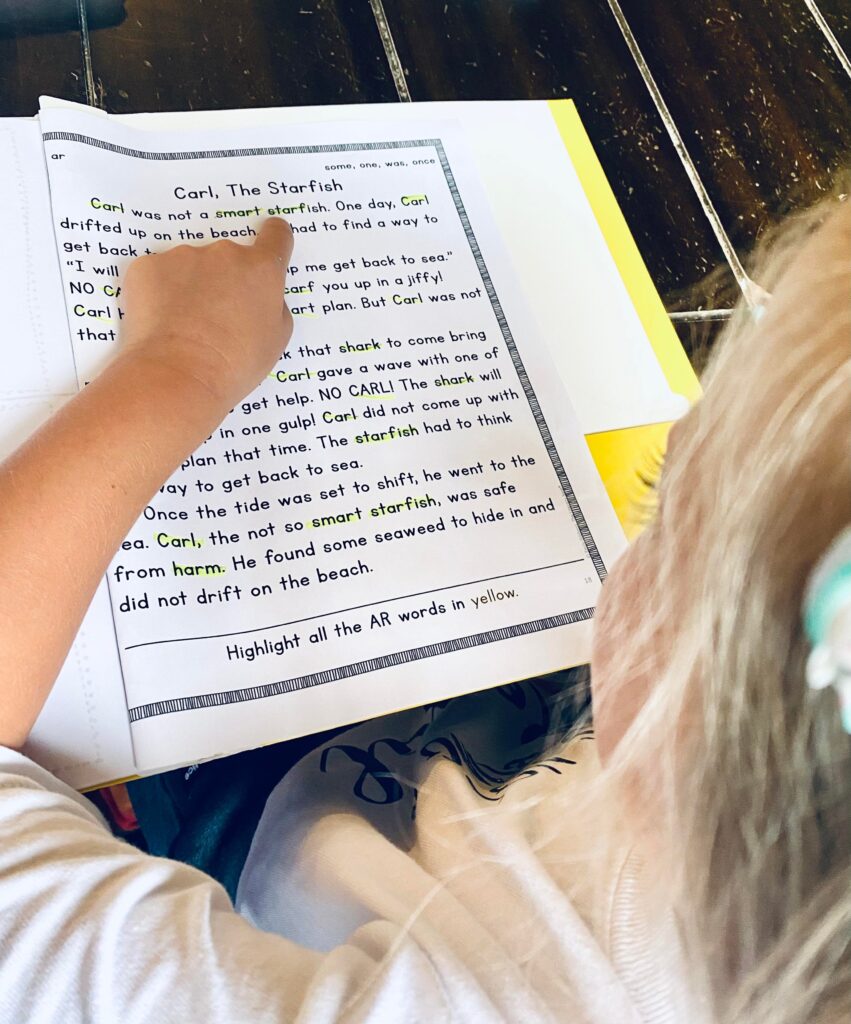
We have no power over what our students do when they are not with us, and we have to be okay with that. You could send home packets with every single child you teach, and you would be lucky to get a handful of students who truly utilize them. And that’s okay. It is not about ensuring that all children do work over the summer—instead, we want to think about the opportunities we can provide and any barriers we can knock down.
*As an Amazon affiliate, I may earn a small commission for purchases made through my links. Your support helps fuel my content creation. Thank you for shopping and discovering amazing new resources with me. Also, I would never share anything that I don’t believe in with every part of me!
Share This:

Savannah Campbell is a K-5 reading specialist. She has taught her entire 12-year teaching career at the school she went to as a child. She holds two master’s degrees in education from the College of William and Mary. Savannah is both Orton-Gillingham and LETRS trained. Her greatest hope in life is to allow all children to live the life they want by helping them to become literate individuals.

Savannah Campbell is a K-5 reading specialist. She has taught her entire 12-year teaching career at the school she went to as a child. She holds two master’s degrees in education from the College of William and Mary. Savannah is both Orton-Gillingham and LETRS trained. Her greatest hope in life is to allow all children to live the life they want by helping them to become literate individuals.
Feeling overwhelmed with all the terminology out there? Want to know the key terms all teachers need to teach phonics? In this FREE Rules of English cheat sheet, you get a 5 page pdf that takes you through the most important terms for understanding English—you’ll learn about digraphs, blends, syllable types, syllable divisions, and move. Grab today and take the stress out of your phonics prep!
